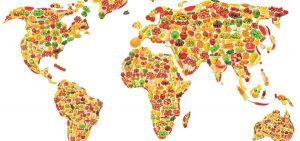Food is one of the basic needs of everyone. The problem here is when food becomes so integrated into the industrialized process, people forget to understand the ethics behind what they are doing. While I appreciate how the industrialization process as an important notion in providing for the many, I feel that the process on animals is very inhumane because of the favor driven toward maximization of resources in order to provide for everyone. What people fail to look at is how animals are social beings, with some species more intelligent than others. Because of this, food production is a very sensitive issue that must be answered. One thing I would also like to take note of is how Pollan discusses the apparent role of nutritionism and how its complexity has made humanity very particular about the nutrients present in food than the culture behind it. This focus on science rather than culture has led to problematic health consequences. While science itself should never be discounted or taken for granted, incomplete science should be considered. The lack of complete information is dangerous because it provides the tendency for people to presume things without the necessary details needed to ensure proactive development. Food is critical, but we should always focus on redirecting our perceptions toward a more healthful consumption.

(Source: http//foodsafetymagazine.com)

Thank you for mentioning the treatment of animals as a critical problem within the global food system. This issue is close to my heart. You point out that increased focus on efficiency – “maximization of resources,” as you put it – has resulted in inhumane practices with regard to animals used in food production. Animals are indeed social beings; potentially more relevant though, is the fact that they *feel,* both physiologically and emotionally. The animals we eat feel pain and sickness in their bodies. They feel the consequences of artificially-introduced hormones and chemicals. They feel the sear of being branded, the puncture of being tagged, and the blunt force of being struck by a human hand or object. These animals also feel fear, sadness, and despair. Their lives are trauma-inducing at best. They live the stuff of nightmares. There’s so much there to unpack. Do you feel that we as humans – inherently social and intellectual creatures – simply favor animals that possess similar traits? Many of the animals that humans are stereotypically drawn to are intelligent (a distinguishing trait you mention), for sure; however, it seems to me that “pretty” and “cute” tend to inform our preference as well. For example, as a species, pigs are quite intelligent, but they also aren’t considered to be traditionally “cute” animals; and Western society as a whole seems okay with eating them.
It’s interesting to consider what truly influences our preference around animal consumption. The global food system is so large; to the individual or local community, it can feel overwhelming and immutable. Regardless of how we choose and what we choose when it comes to consuming animals, they deserve to be well cared for. As humans, we sit at the peak trophic level – the top of the food chain. However, spiritually and morally, our collective species is in the basement; humans have and continue to trash the planet, mistreat animals in the name of “efficiency,” and allow greed to act as a compass. As consumers, we can choose to continue that narrative or to ask for something better.
Thank you for mentioning the treatment of animals as a critical problem within the global food system. This issue is close to my heart. You point out that increased focus on efficiency – “maximization of resources,” as you put it – has resulted in inhumane practices with regard to animals used in food production. Animals are indeed social beings; potentially more relevant though, is the fact that they *feel,* both physiologically and emotionally. The animals we eat feel pain and sickness in their bodies. They feel the consequences of artificially-introduced hormones and chemicals. They feel the sear of being branded, the puncture of being tagged, and the blunt force of being struck by a human hand or object. These animals also feel fear, sadness, and despair. Their lives are trauma-inducing at best. They live the stuff of nightmares. There’s so much there to unpack. Do you feel that we as humans – inherently social and intellectual creatures – simply favor animals that possess similar traits? Many of the animals that humans are stereotypically drawn to are intelligent (a distinguishing trait you mention), for sure; however, it seems to me that “pretty” and “cute” tend to inform our preference as well. For example, as a species, pigs are quite intelligent, but they also aren’t considered to be traditionally “cute” animals; and Western society as a whole seems okay with eating them.
It’s interesting to consider what truly influences our preference around animal consumption. The global food system is so large; to the individual or local community, it can feel overwhelming and immutable. Regardless of how we choose and what we choose when it comes to consuming animals, they deserve to be well cared for. As humans, we sit at the peak trophic level – the top of the food chain. However, spiritually and morally, our collective species is in the basement; humans have and continue to trash the planet, mistreat animals in the name of “efficiency,” and allow greed to act as a compass. As consumers, we can choose to continue that narrative or to ask for something better